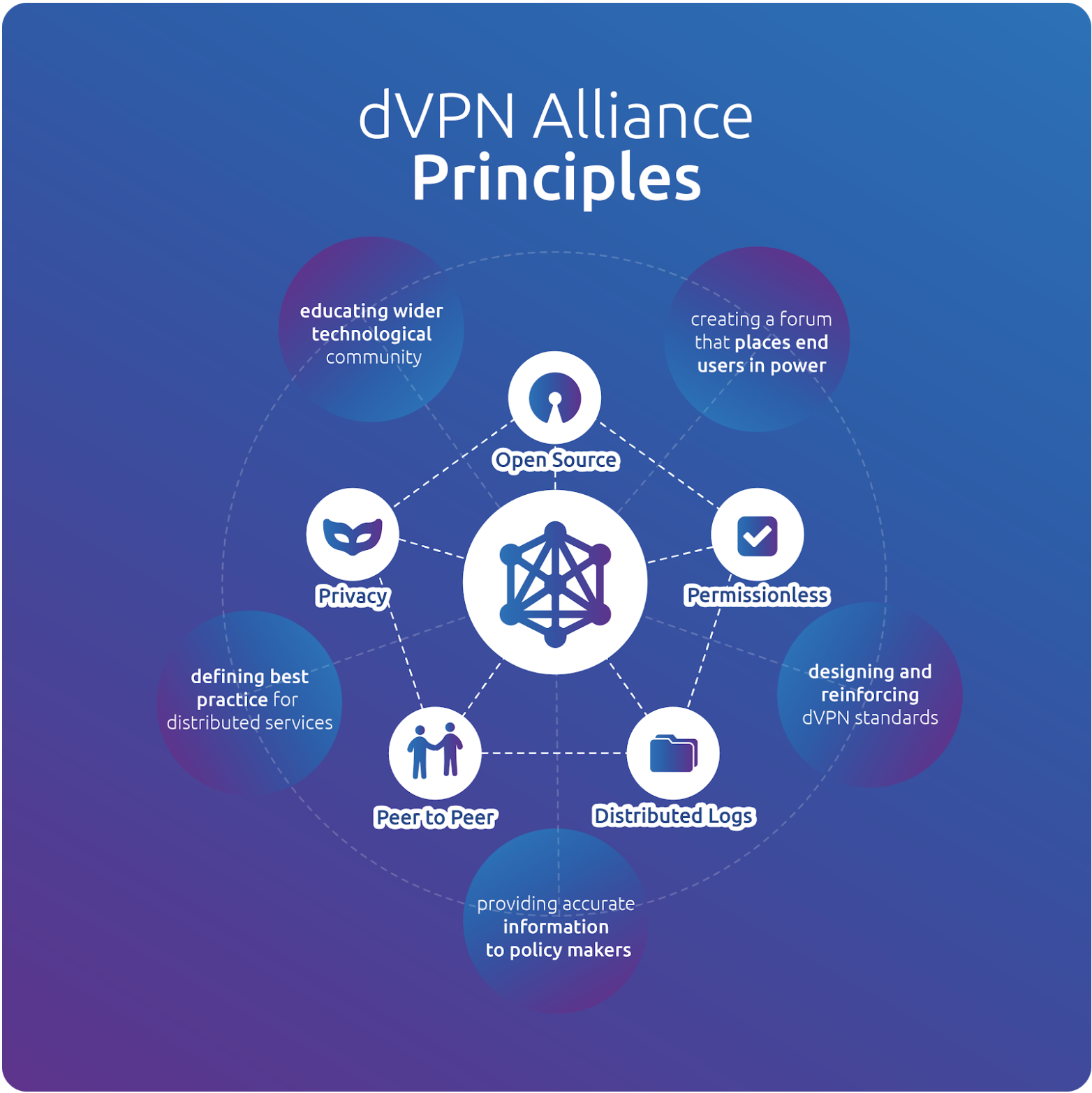Core tenants the dVPN alliance is founded upon:

Open-source
With open-source, you see exactly what you are getting. Anyone can get full visibility into an open-source product or service’s codebase. They can also engage in discussions about how the community contributes by developing features and addressing issues.
Web, mobile, and cloud solutions are now built predominantly on an open-source infrastructure. Open source enables flexibility when building technology products and services, typically offering multiple ways to solve problems. In contrast, proprietary code produced by centralized entities have proven to come with unforeseen limitations and unwelcome surprises.
Permissionless technology
Permissionless technology allows anyone to create an address and interact with a network without a gatekeeper entity permission.
The internet (world wide web) used to be a perfect example of a permissionless system, where anyone could create a website and access it through the internet.
Distributed Logs
In a world where internet architecture is increasingly privately owned, centralization and censorship is becoming a norm. This is why it is important to ensure that no entity, whether an oppressive government or a bad actor, can take the network down, or censor its parts. In the past years, several leading VPN organizations that have claimed a ‘no-logs’ policy have been exposed to reveal that they have been logging user activity and storing the data in a centralized database.
Within decentralised VPN (dVPN) ecosystems, servers and exit nodes are distributed and not centrally owned. As communication and connection is conducted in a random manner within the network, thus a single node processes just a fraction of the data coming from a single user, making data processing within the network completely Decentralised. On top - open-source network components are built to never collect this data. Together these principles make it nearly impossible for any centralized entity to collect, process, monetize or censor data flowing through the network.
Peer to Peer
Peer to peer architectures are powered by the people, for the people. A peer to peer network also ensures network resiliency due to the decentralisation of networking infrastructure. This resiliency leads to less downtime and stronger user experience.
Within the dVPN alliance, individuals and organizations all over the world provide their bandwidth to power dVPN applications. They do this with the intention of contributing to a provably secure environment for sending and receiving data.
Privacy
The dVPN alliance recognizes the importance and the value of the fundamental right to ‘privacy’. The right to individual ‘privacy’ is one of the key facets of a democratic society which believes in equality and freedom. Privacy allows individuals to choose what they decide to share with society and what they intend to keep to themselves or share with those they personally trust. Privacy fundamentally is the enabler of Sovereignty.